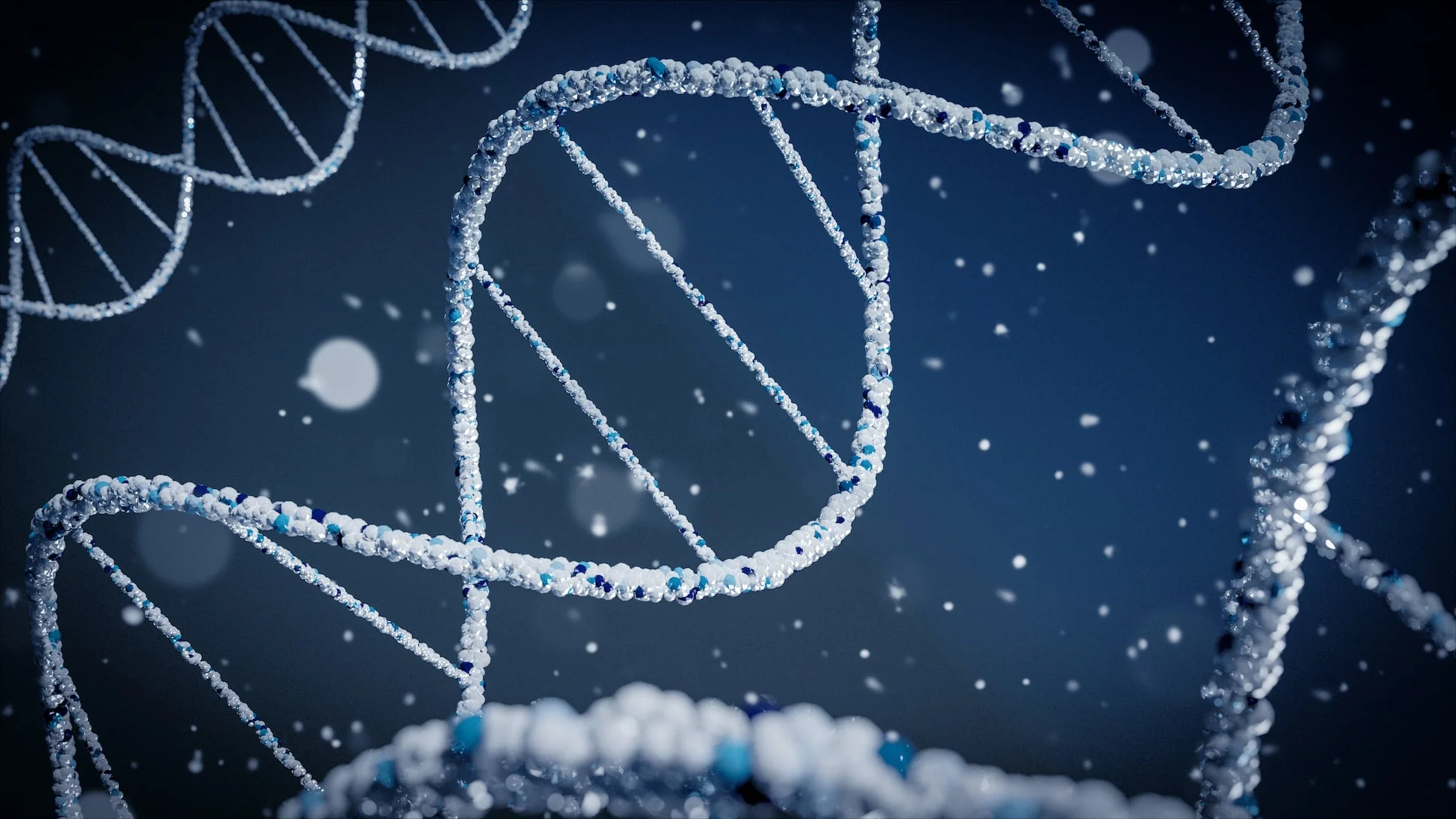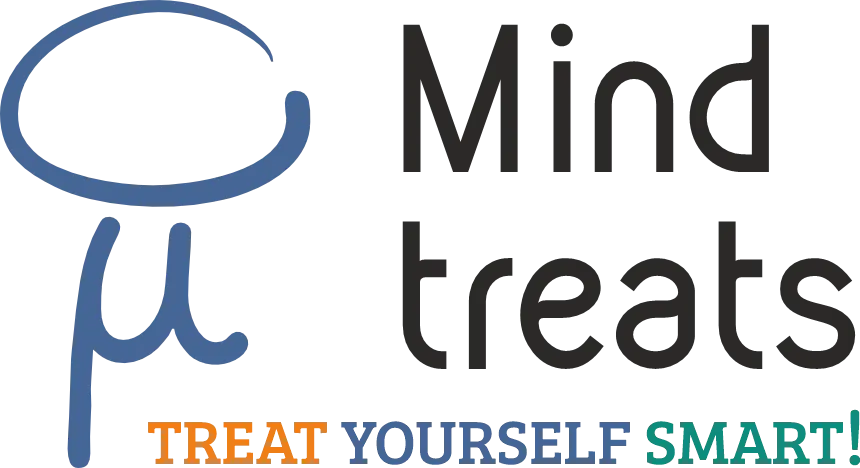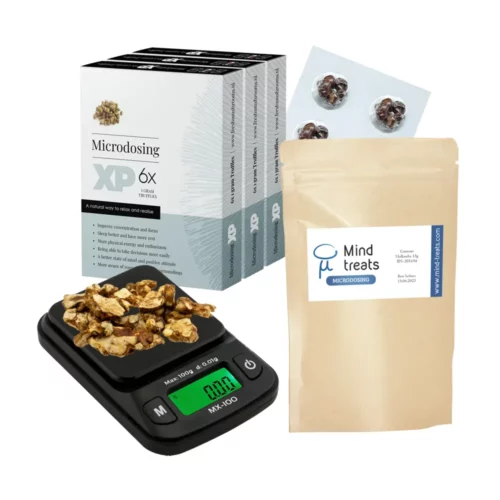Psilocybin Studies
Psilocybin, the primary psychoactive compound found in magic mushrooms and truffles, has been the subject of numerous studies investigating its potential therapeutic benefits, particularly in the treatment of addiction and depression. A growing body of research has shown promising results in the use of psilocybin-assisted therapy for these conditions.

Click below to navigate
Do you want to contribute to science?
You can contribute to a study conducted by Dr. Zachary Walsh (University of British Columbia) whether you microdose or not. You can join simply via app.
“Psilocybin-assisted treatment for alcohol dependence”
by Bogenschutz et al. in 2015
This proof-of-concept study aimed to assess the feasibility and efficacy of psilocybin-assisted treatment for alcohol dependence. The results showed that a single dose of psilocybin, in combination with psychotherapy, was associated with a significant reduction in alcohol use, as well as improvement in symptoms of depression and anxiety.
Go to the Study“Long-term follow-up of psilocybin-assisted smoking cessation treatment”
by Johnson et al. in 2016
This study investigated the long-term effects of psilocybin-assisted treatment for smoking cessation. The results showed that the treatment was associated with a high success rate in quitting smoking and a decrease in symptoms of depression and anxiety, up to 6 months after the treatment.
Go to the Study“effects of psilocybin-Assisted therapy on major depressive disorder: a randomized clinical trial”
by Davis et al. in 2021
A randomized, double-blind, placebo-controlled study, which investigated the safety and efficacy of psilocybin-assisted therapy in treating major depressive disorder. It found, that a single dose of psilocybin, combined with psychotherapy, resulted in significant improvements in mood, anxiety, and quality of life compared to the placebo group.
The study involved 24 participants with treatment-resistant depression, who received two doses of either psilocybin or a placebo, along with psychological support. The participants were followed up over a six-week period, during which they completed several assessments to measure their symptoms and quality of life. The results showed that psilocybin-assisted therapy was well-tolerated and produced rapid, sustained, and clinically significant improvements in depression, anxiety, and quality of life.
Go to the Study“Decreases in depression and anxiety in patients with life-threatening cancer”
by Griffiths et al. in 2016
In terms of depression treatment, a pilot study by Griffiths et al. in 2016 found that a single dose of psilocybin led to rapid and sustained antidepressant effects in individuals with treatment-resistant depression.
Go to the Study“Single-Dose Psilocybin for a Treatment-Resistant Episode of Major Depression”
by Goodwin et al. in 2022
In a trial for treatment-resistant depression by Goodwin et al. in 2022, participants were given a single 1 mg, 10 mg or 25 mg dose of psilocybin. Results showed that the 25 mg dose significantly reduced depression scores over a period of 3 weeks, while the 10 mg and 1mg dose did not have the same effect. However, the use of psilocybin was also associated with some side effects.
Go to the Study“Efficacy of Psilocybin for Treatment-Resistant Depression”
by Roseman et al. in 2018
A study conducted by Roseman et al. in 2018 reported that patients with major depressive disorder experienced significant improvements in symptoms after psilocybin-assisted therapy.
Go to the Study“Psilocybin and MDMA for the treatment of trauma-related psychopathology”
by Bird et al. in 2020
The study by Bird et al. from 2020 shows that there is evidence to support the use of psilocybin-assisted therapy for trauma-related symptoms and MDMA-assisted therapy for depressive symptoms. Depression is a complex condition that can stem from traumatic experiences, especially in early life. When coupled with PTSD, treatment requires a multifaceted approach. Drug-assisted psychotherapy, combining psychotherapy and pharmacology, appears to be a valuable approach in treating both depression and PTSD, especially in those who have not responded to other treatments. Although depressive symptoms may persist following MDMA therapy, this may be a necessary step in processing traumatic memories. A potential treatment course could involve using MDMA-assisted therapy first and then offering psilocybin-assisted therapy to those who still have depressive symptoms. This approach may allow patients to adjust to the heightened awareness experienced under psilocybin after experiencing more present altered states of consciousness under MDMA.
Go to the StudyAnother study regarding the potential of psilocybin in terms of neurogenesis and PTSD is found below in the ‘promotes neurogenesis‘ section.
“Safety, tolerability, and efficacy of psilocybin with OCD”
by Moreno et al. in 2006
This study investigated the effects of psilocybin on patients with obsessive-compulsive disorder (OCD). Nine patients with OCD were given up to 4 single-dose exposures to psilocybin in doses ranging from low to high. Low (100 µg/kg), medium (200 µg/kg), and high (300 microg/kg) doses were assigned in that order, and a very low dose (25 µg/kg) was given randomly and in double-blind fashion at any time after the first dose. The results showed that psilocybin was well-tolerated by the patients and was associated with reductions in OCD symptoms in several of the patients. The reductions in symptoms generally lasted beyond the 24-hour time point. The study suggests that psilocybin may have potential as a treatment for OCD.
Go to the Study“Psilocybin for the Treatment of Obsessive-Compulsive Disorders”
by Ehrmann et al. in 2022
The study discusses Obsessive Compulsive Disorder (OCD), which is a chronic condition characterized by obsessions and compulsions that can be disabling, and a possible treatment with psilocybin. The first-line treatment is not effective in all patients, and there is evidence suggesting the effectiveness of psilocybin and psilocybin-containing mushrooms in reducing OCD symptoms. The case of an adult male with OCD who experienced a clinically significant reduction in symptoms after consuming psilocybin-containing mushrooms is presented, and further research is needed to determine the safety and efficacy of these compounds for OCD treatment.
Go to the Study“Psychedelics and Neuroplasticity: A Systematic Review Unraveling the Biological Underpinnings of Psychedelics “
by Vos et al. in 2021
The study is a systematic review and describes the potential therapeutic effects of psychedelic substances like ayahuasca, DMT, psilocybin, and LSD in stress-related disorders. These substances induce positive changes in the brain that are similar to conventional antidepressants or the rapid-acting substance ketamine, leading to improved cognitive function, reduction of depression and anxiety, and relief from addiction. The way they achieve this is by inducing neuroplasticity in the brain. This review summarizes evidence that psychedelics induce neuroplasticity by examining their cellular and molecular effects on the brain after single and repeated administration. The studies show that psychedelics induce rapid changes in plasticity mechanisms at the molecular, neuronal, synaptic, and dendritic level after a single administration, resulting in changes in neuroplasticity. Repeated administration directly stimulates neurogenesis and increases the expression of genes and proteins related to neuroplasticity. This suggests that psychedelics induce molecular and cellular adaptations that underlie their clinical effects. Further research is needed to understand the specific cellular mechanisms involved and their long-term clinical and biological effects to unlock the full therapeutic potential of these substances.
Go to the Study“Psilocybin induces rapid and persistent growth of dendritic spines in frontal cortex”
by Shao et al. in 2021
This study found, that psilocybin increased the density and size of dendritic spines in the frontal cortex of mice, suggesting that it may promote neuroplasticity. In general, this study shows that the changes in the connections between brain cells that occur as a result of psilocybin use happen quickly and last a long time. This could mean that the effects of using psilocybin, such as positive changes in a person’s thinking or behavior, could last for a long time as well.
Go to the Study“Effects of psilocybin on hippocampal neurogenesis and extinction of trace fear conditioning”
by Catlow et al. in 2021
All of these examples of studies suggest that psilocybin has the potential to promote neuroplasticity and neurogenesis in the brain, which could have positive implications for treating mental health disorders. In conclusion, the findings of these studies indicate that psilocybin holds significant promise as a treatment for addiction and depression, and further research is warranted to fully understand its potential in these areas.
Final thoughts
These examples of studies by Shao et al., Catlow et al. and de Vos et al. suggest that psilocybin has the potential to promote neuroplasticity and neurogenesis in the brain, which could have positive implications for treating mental health disorders like for example addiction, PTSD and depression. In conclusion, the findings of all these studies listed above indicate that psilocybin holds significant promise as a treatment for several mental health problems, and further research is warranted to fully understand its potential in these areas.





